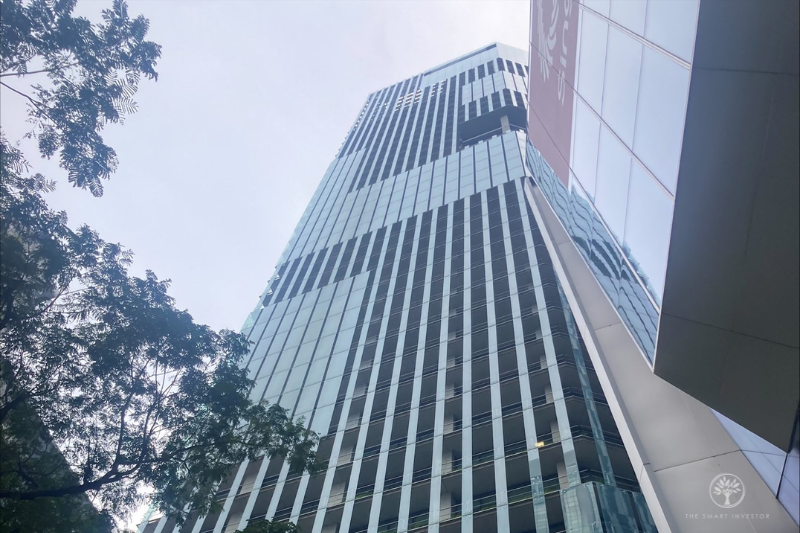CICT’s Net Property Income Continues to Climb: 5 Takeaways from its Latest Business Update

The REIT sector has been taking it on the chin with a combination of higher interest rates and soaring inflation taking a toll on distributable income.
However, there are bright spots even among the carnage.
CapitaLand Integrated Commercial Trust (SGX: C38U), or CICT, is one such example.
The retail and commercial REIT was one of just six REITs that posted year-on-year increases in distribution per unit (DPU) for the financial period ending 31 December 2023.
CICT recently released its first quarter 2024 (1Q 2024) business update and once again reported strong financial and operating metrics.
Here are five takeaways from the REIT’s latest report card.
Higher revenue and NPI
Investors should note that CICT only pays out distributions on a half-yearly basis.
However, the REIT does disclose its financial numbers for gross revenue and net property income (NPI) every quarter.
For 1Q 2024, gross revenue inched up 2.6% year on year to S$398.6 million, with higher revenue recorded for all three of CICT’s business segments of retail, office, and integrated developments.
NPI rose 6.3% year on year to S$293.7 million as rental income grew and operating expenses fell.
Stable debt metrics
Moving on to the REIT’s debt metrics, CICT once again demonstrates a well-spread-out debt maturity profile.
No more than 15% of its total loans come due in any financial year and close to 19% of its debt is up for refinancing in 2030 and beyond.
As of 31 March 2024, CICT’s aggregate leverage stood at 40%, around the same level as it did three months ago.
The average cost of debt, however, crept up slightly from 3.4% to 3.5% over the same period.
The REIT’s interest coverage ratio remained healthy at 3.1 times and the manager estimates that with every one percentage point rise in rates, DPU will be impacted by S$0.0035 or around 3.3% of 2023’s DPU of S$0.1075.
In addition, the REIT also had slightly more than three-quarters of its debt on fixed interest rates to mitigate a further jump in finance expenses.
Robust operating metrics
CICT’s operating metrics also demonstrated its resilience amid the headwinds.
Portfolio committed occupancy stood high at 97%, down just 0.3 percentage points quarter-on-quarter.
The REIT also reported positive rental reversions for both its retail and commercial segments year-to-date.
The retail portfolio enjoyed a 7.2% positive reversion while the office portfolio saw rental reversion increase by 14.1%.
These metrics attest to the strong demand for CICT’s properties.
Healthy leasing activity was also seen across the REIT’s portfolio.
The retail segment saw 254,600 square feet (sqft) of new and renewed leases with a retention rate of 88.1%.
As for the office portfolio, 209,900 sqft of new and renewed leases were conducted across CICT’s Singapore, Germany, and Australia assets.
The retention rate for the office division came in at 84.2%.
Retail sales going strong
Shopper traffic and retail sales remained robust with improved global flight connectivity driving higher tourist arrivals.
For 1Q 2024, retail shopper traffic increased by 3.6% year on year with downtown malls leading this metric with a 4.2% year-on-year increase.
Tenant sales also did well, registering a 2.1% year on year overall increase.
Suburban malls fared better at this metric with a 3.1% year on year increase in tenant sales versus downtown malls with just a 1.7% increase.
CICT continued to optimise its tenant mix for 1Q 2024 with the introduction of new-to-market or new-to-portfolio brands such as Bacha Coffee, Noodle Star K, Dreame, and Nitori.
Asset enhancements in progress
Although the REIT did not announce any yield-accretive acquisitions this quarter, the manager is actively executing asset enhancement initiatives (AEIs).
The AEI has commenced for the IMM Building at level 1 and has achieved a committed occupancy of 75% for phases one and two of the AEI spaces.
As for Gallileo building in Frankfurt, Germany, the AEI’s phase one has also commenced.
CICT has already secured a lease agreement with the European Central Bank (ECB) for around 93% of the net lettable area, giving the property a 93% committed occupancy.
There will be a phased handover of the leased area to ECB from the second half of 2025 onwards.
Get Smart: More good times to come
With CICT enjoying a host of encouraging financial and operating metrics, REIT investors should continue to see its DPU head higher in the quarters to come.
The REIT manager may also announce possible acquisitions or conduct more AEIs to improve rental income.
Want more dividends in 2024? Our latest FREE report spotlights five Singapore REITs with distribution yields of 5.5% or more, a rare find in today’s market. These are reliable, proven performers. Just one stock inside could boost your portfolio’s returns in the next few months. Download your report today and start reaping the benefits.
Follow us on Facebook and Telegram for the latest investing news and analyses!
Disclosure: Royston Yang does not own shares in any of the companies mentioned.
The post CICT’s Net Property Income Continues to Climb: 5 Takeaways from its Latest Business Update appeared first on The Smart Investor.

 Yahoo Finance
Yahoo Finance 